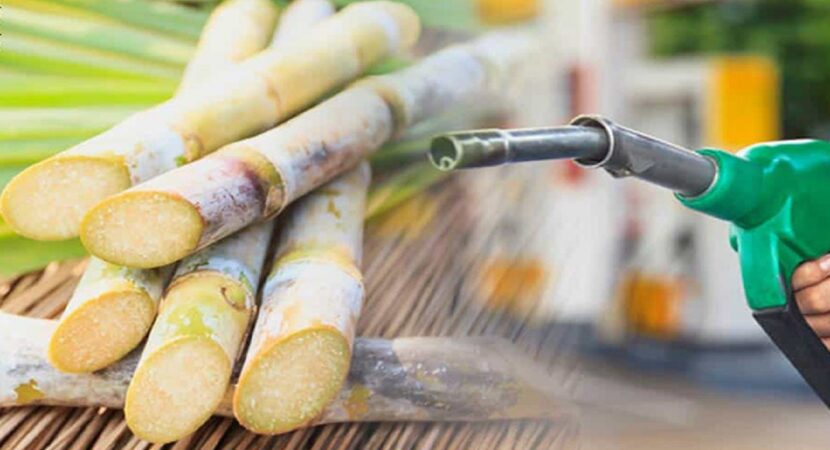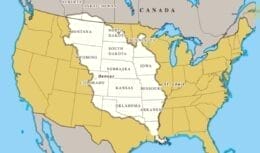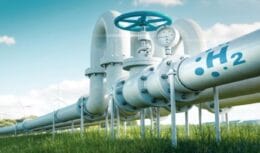
The new wave of ethanol is yet to come and, according to the president of Ceise BR, if Brazil does not hurry, it could be left out of the new fuel expansion due to very high taxes.
The least pleasant estimates on Brazilian taxes state that, within a decade, to supply the world fuel market, an injection of 20 billion liters of ethanol per year will be necessary. Ethanol has advanced a lot, being important for the environment, since it reduces carbon dioxide (CO2) emissions by 70% compared to a fuel derived from petroleum. The scenario is favorable for this biofuel, which is generated from sugarcane and corn, but Brazil may be left out of this growth due to the famous “Brazil cost”.
Read also
President of Ceise BR explains why Brazil is left out of the expansion of ethanol
According to Luís Carlos Júnior Jorge, president of the National Center of Industries of the Sugarcane Energy and Biofuels Sector (Ceise BR), the country will be left out due to the Brazil cost. He claims that we are not competitive in terms of the weight of the tax burden, but there is still time to fix the situation and get Brazil's base industry into the great ethanol market that is to come.
In the coming years, the global market for anhydrous ethanol will require an additional demand of 19,4 billion liters per year due to increased addition of fuel to gasoline in countries such as the Philippines, India, Thailand and China.
The estimate may be even higher, says Luís. For this, in addition to planting sugarcane or corn, which are the raw materials for ethanol, it will also be necessary to install distilleries and plants. According to him, the base industry, which comprises 3,5 companies, is ready and has been waiting for years for this recovery. Currently, we have an idle capacity of 30% in the sector, and the closure of several companies in recent years, due to a lack of orders, demonstrates that the industry is prepared.
The main villains of fuel expansion in Brazil – taxes
According to him, for small and medium-sized companies, the main villains are the very high interest rates and taxes that, even with the low Selic rate, when it comes to getting money, rates go above 10%.
If we take into account, the profit is between 3% and 5% at most. The government needs to understand that it will be a four-hand job for the base industry to be able to participate competitively in this new fuel expansion, otherwise it will be practically impossible.
If Brazil is not fast enough, it will miss the second wave of ethanol, just as it missed the first when ethanol surged in countries like Colombia and Central American countries. Brazil was left out of the expansion due to taxes.
Brazil's low competitiveness
Brazilian competitiveness is 30% lower compared to industries in countries like China and India, due to the tax burden. In the wave of ethanol in Central American countries, the Brazil cost affected not only distilleries but also boilers.
In India, even with inferior technology to ours, boilers followed the wave. Luís states that it would be better to reduce the tax burden, as tax collection increases with more income. As in the government of Geraldo Alckmin, in São Paulo, when the ICMS on ethanol had to be reduced and collection increased.
Ethanol prices soar at the pumps as consumption grows and mills extract more sugar; who pays the bill is the consumer
Break in sugarcane harvests causes reduction in ethanol production in Brazilian refineries and who pays the bill is the consumer, since the prices are higher at distributors due to the lack of raw material. It is estimated that in the following weeks ethanol will reach an unusual value at distributors.
Even with some industries not operating at full capacity in the Center-South, other regions were affected. Experts comment that consumers should replace their vehicles with more sustainable options in order to save money.
Ethanol reaches almost 5 reais at the pumps and filling up with gasoline becomes more advantageous in some Brazilian regions
Ethanol, which before the pandemic factor it cost an average of R$ 1,99 per liter, now it has completely changed, costing R$ 5,00 the liter after a year of the pandemic. Brazilian fuel stations claim that the value has changed as a result of the fall in sugarcane crops.
After bringing a US factory to Brazil, Bosch is betting on the use of ethanol to charge electric cars
With the idea of leaving the battery of electric cars aside, the multinational Bosch decided to bet on ethanol and dispense with stressful outlets and recharges in the new standard of electric vehicles.
The idea is that the new technology of multinational competes for the market along with batteries as a less polluting solution that ends up making the vehicle lighter than the common standard. The CEO of the multinational Bosch defends the idea that his new fuel cell can revolutionize the automotive industry.










